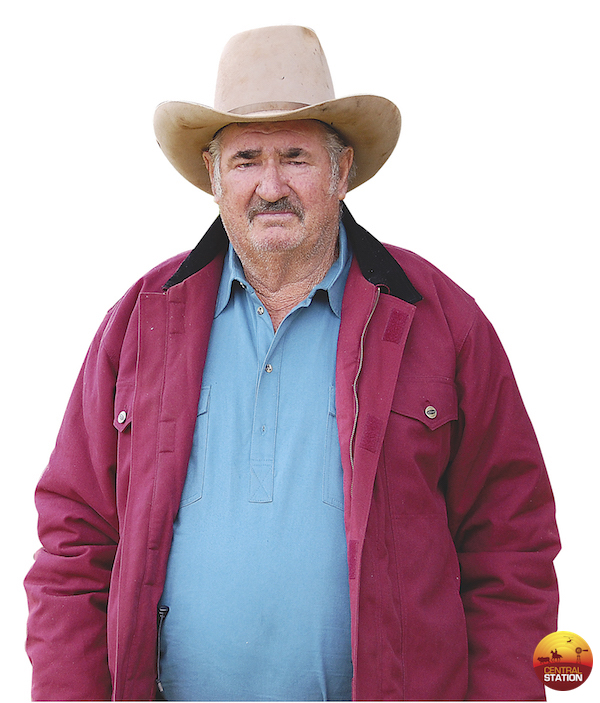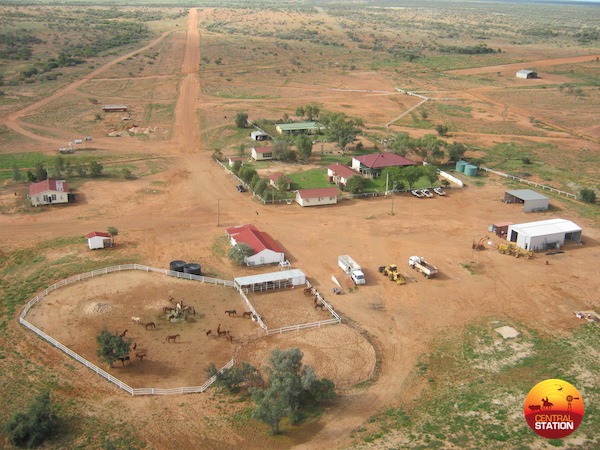“An Outback Life” – Merv Wortley Senior, Ruby Plains Station, WA
Host: Kent Saddlery
Written by Helen Kent.
This tribute and story excerpt has been contributed by Lyle and Helen Kent of Kent Saddlery.
Recently, it was with great sadness that we received news from Jenny Rigg of Ruby Plains Station, Halls Creek, WA that Merv Wortley Senior had died. The father of Merv Wortley, current manager of Ruby Plains, Merv Senior was almost 80 years of age and had spent most of his life in the bush working with stock. Properties around the Channel country and North of Australia were his home and he had many a yarn to tell.
Lyle and Helen were privileged to meet with Merv each year at Ruby Plains while on their annual business trips and Merv was willing to sit with them and allow them to record some of his accounts and yarns. In tribute to Merv, we are sharing an excerpt from his story, featured in Helen’s coffee table book, “Stories of Australian Country People“. Merv was a gifted story teller and the full story recounts some of his personal story and other yarns.
Each year at Ruby Plains, Merv would usually say “Come next year and I’ll tell you another story.” That opportunity has now gone and this year when Lyle and Helen visit the station they will greatly miss seeing the old stockman. Our sincere sympathy and condolences go to Merv, Jenny and Merv Senior’s family, to all at Ruby Plains, and the many people and friends who knew and appreciated Merv Wortley Senior.

In the early 1950’s, at the age of 14, Merv ran away from home and spent four years working at Keeroongooloo Station, south of Windorah. Merv pronounces it, “Kurungla” – like no one else can.
Merv has been around horses and cattle all his life and his youth encompassed a time when bronco-branding was the method used to brand calves.
Merv records this ‘account’ of when he was a headstrong youngster at Keeroongooloo. In an incident that the young Merv would be unlikely to forget, he describes the bronco-branding method with great accuracy.
The head stockman had put Merv on a bronco horse to rope the calves for branding. Merv wasn’t paying much attention and his catching rope kept missing the calves. The head stockman warned, “Make sure you catch the next calf.” Merv missed the calf and the next thing he was dragged from his horse and the bronco rope attached to another horse was tight around him. He hit the ground and was pulled up to the bronco panel. The other men put leg ropes on him, bronco style, and scruffed him to the ground like they would a strong calf. As the castrating knife appeared, the cheeky kid was “singing out for mercy!” Thankfully mercy was shown and he adds, “I never went through that deal again. I made sure I caught the next calf! I thought, ‘I’d better do what I’m told!’
The head stockman had the last word, one that Merv would never forget: “That wasn’t very hard was it?”
Apart from that scary incident, Merv remembers the days of traditional bronco-branding with satisfaction. He recalls memories of a big black horse named ‘Pig’ and other strong bronco horses which, along with a skilled catcher, made the work easy.
Following a suggestion from the manager at Keeroongooloo to “see how other places do it,” Merv joined a droving team and spent several years transferring cattle from Charleville in Queensland, to Moree in New South Wales. Each drove took 16 weeks, followed by a journey of 16 days to bring the horses back. As he waited for the next mob, he worked on Boatman Station, out of Charleville. Merv married Lois Johnstone in 1965 and they returned to Keeroongooloo where he ran the stockcamp for 25 years.
The stockcamps often had between 20 to 30 men and around 500 working horses, and the ways in which young men were recruited were questionable to say the least. Merv, one time, was at Eromonga waiting to catch the mail truck out to Keeroongooloo, when his swag and saddle were taken and then hidden. It was an effort on ‘someone’s’ part to keep him at a nearby station, where 160,000 sheep needed shearing!
He flatly refused to stay and stubbornly let them know, “Well, I don’t care, I’m not stopping here to work sheep!” He travelled on to Keeroongooloo without his swag and saddle, which were sent on to him the following week.
Alternatively and strategically, young workers were shouted too many drinks at a local pub, and they’d wake up the next morning on a drove or at another work place. “That used to go on a lot,” said Merv.
 Keerongooloo Station.
Keerongooloo Station.
